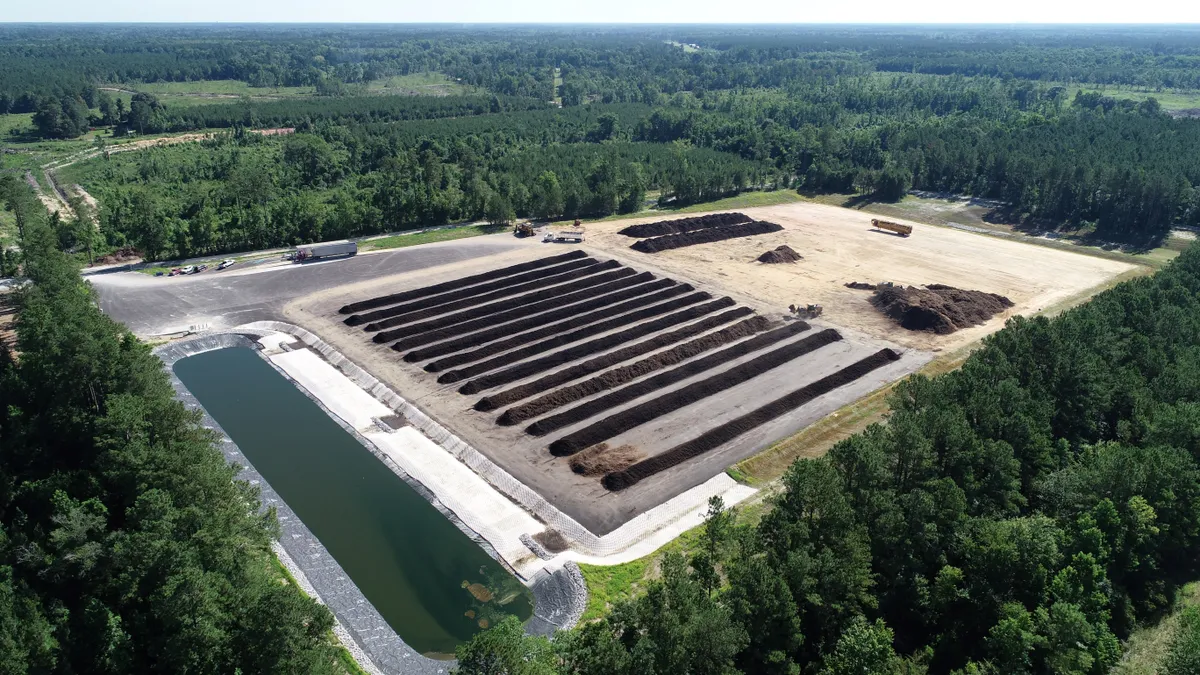Organics processor Synagro Technologies has opened two new composting facilities that will accept biosolids, the company announced Thursday.
Synagro invested about $50 million in the facilities, which it expects will produce a combined 78,000 tons of compost annually, according to a press release.
Baltimore-based Synagro released its first sustainability report last year. The company said about 80% of the biosolids it processed were diverted from disposal in 2022, and it plans to increase that amount. Synagro considers itself to be the largest biosolids processing company in the U.S., serving more than 1,000 municipal, industrial water and wastewater facilities.
In Deerfield, New Jersey, Synagro built the Cumberland County Biosolids & Organics Recycling Center, an in-vessel composting process building that will serve the greater New Jersey market. The facility is expected to process about 40,000 tons of green or wood waste and 75,000 tons of biosolids to produce about 38,000 tons of compost annually.
“Synagro considered multiple technologies before selecting composting for the Cumberland County facility,” John Goodwin, Synagro's senior vice president of technology, said in a statement. “Our choice of an in-vessel composting process was driven by the desire to utilize proven technology with a demonstrated ability to produce a high-quality product while maximizing the environmental benefits of the facility.”
In South Carolina, Synagro built a 25-acre windrow facility. The Holly Hill Composting Facility is slated to process 75,000 tons of biosolids annually, diverting those materials from landfills, according to the company. The facility is expected to produce 40,000 tons of “exceptional quality” compost as defined by South Carolina statute annually.
The product produced by both facilities will be marketed as Synagro’s AllGro Compost, a soil amendment that the company says reduces the need for chemical fertilizers. Its website says AllGro is commonly used for alfalfa, corn, cotton, landscaping, turf and wheat.
Wastewater treatment plants and organics recyclers have faced rising scrutiny over their handling of biosolids, which have caused PFAS contamination issues in states like Maine and Texas. In an emailed statement, Synagro’s Chief Sustainability Officer Kip Cleverley said Synagro will ensure its inbound biosolids “are not industrially impacted” by PFAS and that the windrow site has a low permeability surface to prevent leakage.
In addition to its work expanding beneficial reuse of biosolids, Synagro has also been growing via acquisitions. Most recently, it acquired Massachusetts-based New England Fertilizer Co., which operates five biosolids processing facilities.











